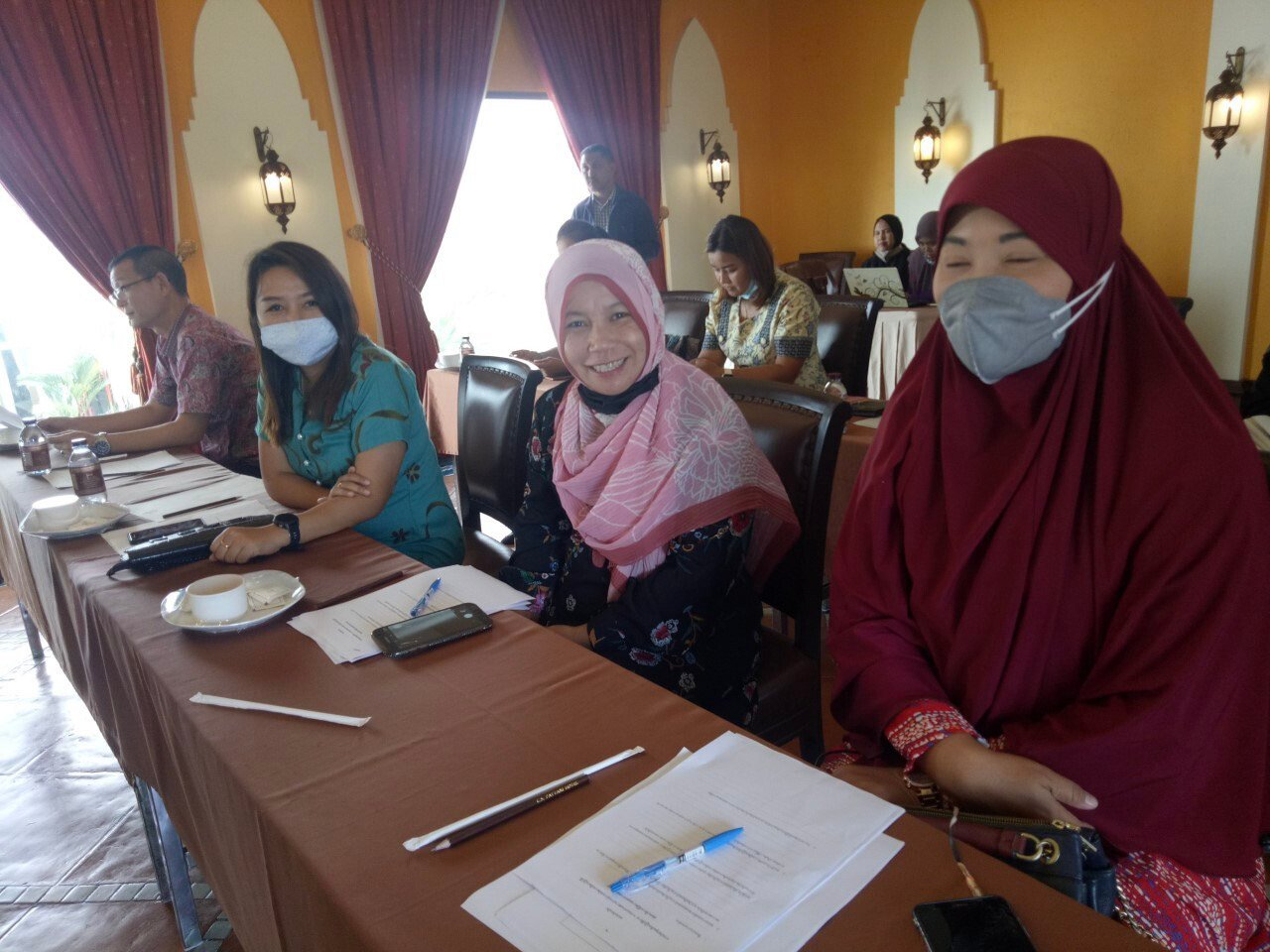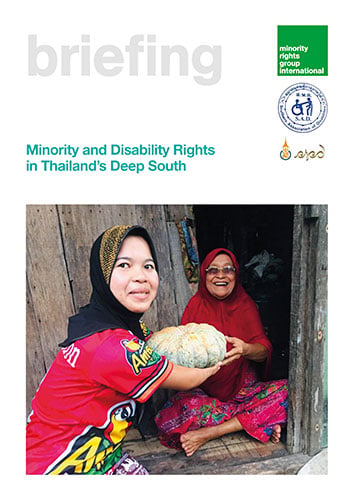
Evaluation: Minority Empowerment for Democracy and Pluralism in Sri Lanka
We are no longer accepting applications for this opportunity.
Click here to see all open opportunities.
Title
Evaluation: Minority Empowerment for Democracy and Pluralism in Sri Lanka
Terms of Reference and Call for Expressions of Interest to evaluate the programme
Deadline for applications: 15/06/2025 at 17:00 GMT
This is a summary of the evaluation terms of reference. You can download the full document here.
1. Project background information
This European Union-funded programme seeks to protect human rights and democracy in Sri Lanka by achieving full inclusion of minorities, particularly women and youth, in electoral processes. It aims to empower communities to influence electoral reform, enhance public debate on political participation, and build capacities for inclusive governance.
Implemented across six districts, the programme engaged directly with 150 minority women and 150 minority youth from these provinces. It also targeted 30 election commission and government officials, 50 politicians, and 50 journalists, including 20 from minority women and youth backgrounds, to ensure a broad-based and inclusive approach.
Overall objective: To protect human rights and democracy in Sri Lanka by achieving full inclusion of minorities, particularly women and youth, in electoral processes.
Specific objective: To strengthen the inclusion of minorities, particularly women and youth, in electoral and political processes in Sri Lanka.
The project’s three results were as follows:
- Increased capacity of minorities to participate in electoral processes, conduct community-based research, and influence electoral frameworks and practices.
- Increased trust, confidence, and collaboration among minority communities and civil society actors, leading to collective action and peer solidarity for inclusive governance.
- Increased awareness and engagement of local, national, and international stakeholders in promoting the rights of minorities and advancing their role in Sri Lanka’s democratic processes.
2. Purpose and users of the evaluation
This evaluation is intended to evaluate the project’s results in relation to its stated objectives, its effective implementation, and to assess the sustainability and potential scalability of the project’s outcomes, and to generate new insights and learning to strengthen future projects interventions by partners. . The final evaluation will be shared with the project’s donor as part of its final reporting obligations and will form an important part of partner’s transparency in regards to their respective stakeholders.
The evaluation will serve as a secondary verification tool for the project donor regarding the reported outcomes. It will assist project partners in strengthening their project management and intervention strategies. Evaluation will inform future project design and monitor the ongoing intervention. it will offer feedback and transparency to stakeholders, including local partners, decision-makers, and other entities involved in the implementation.
3. Scope of the evaluation
The scope of the evaluation should encompass a relevant cross-section of the project’s activities, necessary to effectively assessing its achievements against its original log frame objectives and outputs. In order to achieve this, it should select a range of activities to assess from local, national and international targeted activities and a cross section of the project’s results.
The evaluation will encompass results and outputs achieved during the implementation period but can also provide guidance and insight into potential long-term impacts that could follow the project’s completion (January 31st 2026).
4. Evaluation objectives, criteria, and questions
Objectives of the evaluation are as follow
- To assess the project against its stated objectives and results (log frame) and intervention logic.
- To provide co-implementing partners with an opportunity for learning from design and implementation process and guidance on opportunities for sustainability of the programme.
- To develop recommendations for stakeholders, including the donor, implementing partners, local partners, decision makers and other interested actors working in the field.
5. The principles that will guide the evaluation
The evaluation should be guided by the principles of transparency, partnership and openness and take into careful consideration the situation of the programme stakeholders whom the evaluator will target. Gender and cultural sensitivity therefore are essential to both the planned methodology and effective conduct of the evaluation, particular attention should be paid to ensure approaches that are inclusive of persons with disabilities, who are one of the programme’s key stakeholder groups.
Data should be disaggregated by both gender and disability and ethical procedures in data collection and storage of information should be applied. The evaluator will need to provide a declaration of conflict of interest.
The evaluator should also consider security concerns that may arise during the conduct of the evaluation, not just for themselves but for stakeholders and interviewees. These should be addressed in any evaluation methodology.
6. Key deliverables
- An inception report and attached mandatory Annexes in English, following the initial review of programme documentation.
- Final Evaluation Report (15-20 pages, excluding Annexes), including an Executive Summary (2 pages) in an accessible, easy-to-read format in English language. The final evaluation report will be full and detailed for internal use and for submission to the donors, and will include lessons learned, recommendations, and suggestions for dissemination and utilization of findings.
- A public facing document to be uploaded on MRG’s website in which key identifiers of individuals, organizations and locations will be removed where inclusion in a public document may result in additional security risks; and which will be supplied in both English and local languages.
7. Key tasks
Based on MRG’s prior experience, we anticipate that the following tasks may be needed, but we are open to suggestions for alternative methodologies:
- Read all programme materials and review feedback from programme partners (including notes of meetings, publications, reports of campaigns, media coverage, training evaluations, capacity assessments, email correspondence, baseline and monitoring reports).
- Speak to MRG programme staff.
- Hold detailed discussions regarding programme implementation, results and impact with staff from each partner and sub-grantees.
- Meet with/speak to local partner organisations staff.
- Visit programme locations and speak to community members, local staff and officials. Visits should be arranged independently and should not rely on programme staff, nor should programme staff be present.
- Independently identify and get opinions from at least 5 additional experts/well informed sources.
- Please note: the evaluator is tasked with handling issues related to security, weather conditions, logistical challenges, limited access to resources, to obtaining permits to conduct research, and other relevant matters.
8. Evaluator(s) qualification and expertise required*
The Evaluator or Evaluation team needs to take into account the global scope of the programme’s implementation, location of stakeholders and languages and accessibility of stakeholders.
Given this scope multi-disciplinary teams maybe appropriate. Given the wide scope and available budget for the evaluation, travel to meet with beneficiaries and stakeholders is not a requirement of the evaluation but where possible would be considered beneficial.
Required expertise includes:
- Extensive knowledge and proven experience of working on human rights, gender, NGO capacity building, including knowledge of relevant debates and international standards.
- Experience of comparable evaluations and strong track record of evaluations carried out on civil society programme’s targeting communities facing serious levels of marginalisation and exclusion.
- Ability to speak, read and write English fluently.
- The evaluation team will all need to be able to demonstrate the ability to gain the trust of the partner organizations, individuals and the indigenous communities targeted in this programme.
9. Budget
The available budget for the evaluation within the range of 8050.00 Euro. The proposed budget cannot exceed this amount.
Candidates must supply a detailed estimation of the total cost of the evaluation.
10. Timeframe and Submission
| Deliverable | Timeline | Remarks |
| Inception Report | Within 1 month of contract signing | Sets out methodology, tools, and workplan |
| Field Work | November 2025 and December 2025 | To be conducted between December and January |
| Draft Evaluation Report | By 30th January 2026 | Submitted to MRG and partners for comments |
| Feedback from MRG and Partners | Within 5 working days of draft submission | Consolidated feedback provided by MRG |
| Final Evaluation Report (in English) | By 15th February 2026 | Must address all comments received |
| Public-Facing Summary (English + Local) | By 28th February 2026 | Prepared for external sharing and translation included |
How to apply
If you are interested, please read the full Terms of Reference, and apply using the form below. Please submit the following by 15 June 2025.
- Team members’ CVs (max 2 pages per person)
- Cover letter setting out how the evaluator team meets the requirements specified in Section 8.
Application area
Submit your application here
Sri Lanka Evaluation application
"*" indicates required fields




